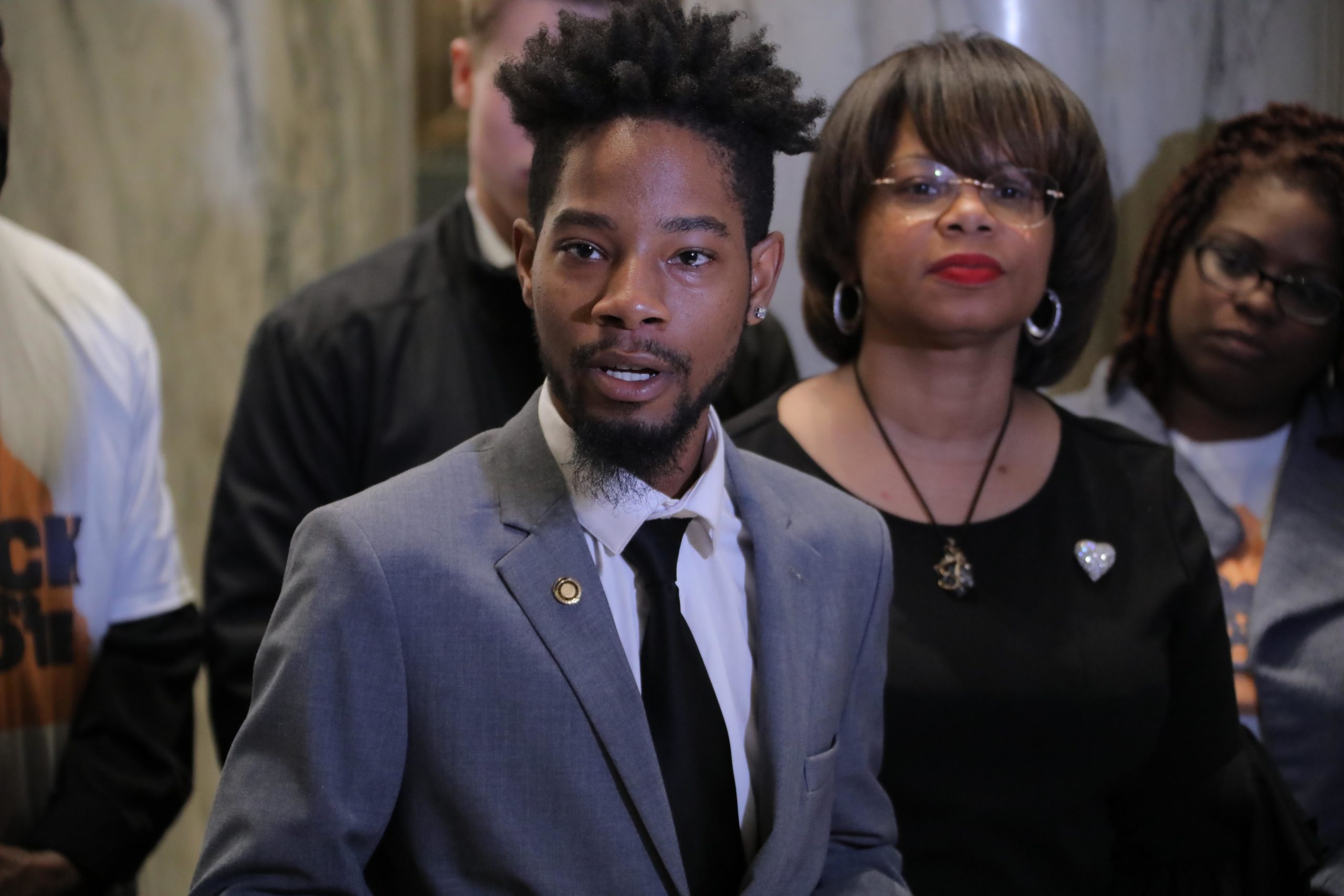The Missouri Times is previewing pre-filed legislation, bringing you an insider’s look at bills that could potentially drive session this year. Follow along with our Legislative Preview series here.
In the wake of police shootings and calls for criminal justice reform in Missouri and across the country last year, a bevy of law enforcement legislation is on deck for the upcoming legislative session. One bill, sponsored by Rep. Rasheen Aldridge, seeks to increase police accountability and foster relationships with the community.
HB 405 would initiate several reforms for Missouri law enforcement. Aldridge — a Democrat who has advocated for reform in his district since the death of Michael Brown in 2014 and led numerous protests last year — said the bill would foster a stronger relationship between police and their communities through accountability measures.
“The bill is meant to ensure that police officers are being held accountable,” Aldridge told The Missouri Times. “Ideally what this would do is continue the conversation on police accountability. We know this is something the chamber has talked about in the past, and it’s something Missouri needs. It isn’t an ‘us versus. them’ situation or trying to pick on law enforcement; it’s an attempt to improve accountability so we can have a better relationship within our community.”
The bill would make several changes to state statutes on law enforcement, including banning the use of no-knock warrants as well as prohibiting the use of chokeholds — responses to the deaths of Breonna Taylor and George Floyd last year. Additionally, the bill would revise the state’s policies on the use of chemical agents, Peace Officer Standards and Training (POST) Commission rules, and other law enforcement policies.
Aldridge said he hoped the abundance of police reform bills filed for this session — including provisions from legislators across the aisle, such as Reps. Shamed Dogan and Ron Hicks — would lead to successful reform this year. Several incoming legislators had also expressed interest in facilitating reform in Missouri, Aldridge said.
“I do think there’s an appetite, especially with some of the younger [representatives], to talk about how we can make this system more just and fair so we don’t have to have these hard conversations so often,” he said. “We hope to make this change so we can grow and build off of these reforms. We all want safe communities, and I believe that people in the legislature want these communities to work together and feel safe when law enforcement patrols their street.”
Aldridge said he hoped the bill would help ease tensions between police and communities across the state and that changes could be made to benefit everyone involved.
“As someone who’s worked with law enforcement and been part of protests, I know officers have a hard job,” he said. “This legislation is trying to make it to where we’re eliminating the bad apples and holding them accountable so that they’re not all being lumped into one bunch. We still have distrust in communities and still have law enforcement feeling like they’re being picked on, and I think this is a good way to address things that have been in the news in recent years and have been going on for much longer.”
The POST Commission has made several changes to the state’s law enforcement training policies last year in response to the nationwide unrest, including adding classes on minority policing and de-escalation to the statewide curriculum and approving Lincoln University’s application to host the first police academy at a historically Black college and university (HBCU).

Cameron Gerber studied journalism at Lincoln University. Prior to Lincoln, he earned an associate’s degree from State Fair Community College. Cameron is a native of Eldon, Missouri.
Contact Cameron at cameron@themissouritimes.com.



























